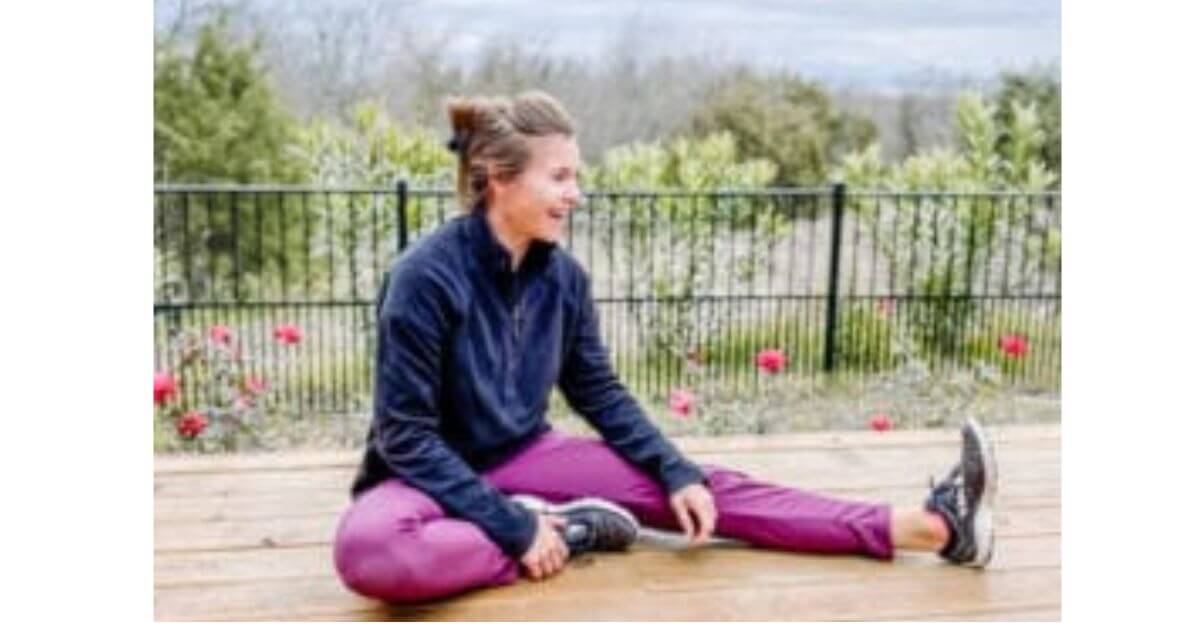Wondering about nutrition for IBD athletes? Many of us have experienced the dark side of training in suboptimal scenarios, such as rushing to the toilet in an urgent effort to avoid an accident or experiencing our previous meal for a second time but in a much less pleasant way.
These experiences can be even more frequent and/or more intense for those of us with IBD than for the general population due to the nature of our inflamed bowels and disease process.
You may be wondering if you can classify yourself as an athlete. Maybe you are a new mom, a fireman or police officer, or maybe you try to fit all of your training for a race into your off days on weekends. Rest assured, we are all athletes!
In some way all of these scenarios are aiming for improved performance – more stamina for rocking a fussy baby and the strength to load a toddler and a car seat, cardiovascular endurance and muscular strength to endure a chase or a fire, energy and fitness to withstand hours of training. We are all asking our bodies to adapt and improve!
But, do we have access to strategies that can help mitigate negative side effects of training?
In this article we will explore many of the strategies that can be implemented for the IBD athlete to improve tolerance to training as well as manage symptoms and inflammation over time.
Proper nutrition, timing, and gut training all play a significant role in helping the IBD athlete be able to better manage their disease while improving athletic training and performance.
Let’s dive in!
The Critical Role of Nutrition for IBD Athletes
Due to the demanding nature of many sports or exercise regimens, athletes typically require more nutrients and fluids than the general population. Carbohydrates, a broad category of foods, are required for high performing individuals to provide necessary energy in any circumstance.
Carbohydrates are unique in that they can be oxidized for energy in anaerobic (without oxygen) and aerobic (with oxygen) environments. This makes them available for quick energy production during quick, intense movements as well as during longer events.
Protein helps rebuild and repair muscle that has been broken down during exercise. And fat provides a concentrated energy source to the athlete for long duration events and during rest and recovery. As well as providing and ensuring delivery of fat-soluble vitamins like vitamin D and Omega-3’s.
Even so, consuming these nutrients in adequate amounts at the right times can be incredibly challenging for IBD athletes. Many of the athletes we work with face significant challenges such as carbohydrate intolerances, where the very foods that need to make up 50-65% of the total diet in many cases cause bloating, gas, abdominal pain, and bowel movement irregularities.
Other challenges might include nutrient deficiencies or difficulty absorbing nutrients from damaged and inflamed intestines, other food intolerances, fatigue, or even finding the time to prepare appropriate foods for training.
Dietary Restrictions and Challenges for Athletes with IBD
Oftentimes, when it comes to navigating nutrition for IBD athletes, it’s important to consider the landscape of what challenges IBD patients face.
IBD athletes just aren’t consuming enough to meet the demand of their sport or exercise regimens. This can be due to the aforementioned scheduling issues. Or it could also be due to pain and discomfort with eating, the latter being more prevalent in this population.
It seems counterintuitive, but the lack of calories and therefore energy that the body is missing out on actually fuels a lot of the symptoms our clients experience.
When energy needs aren’t met chronically, the gut slows down and nutrients are distributed to vital organs. Which in turn makes food more and more difficult to digest and utilize.
Consequences to performance and health ultimately arise because just like a car with no gas, bodies can’t perform without enough energy.
Key Strategies for Athletes with IBD
To ensure adequate intake while also managing and reducing symptoms is clearly a challenge! This is why The Crohn’s and Colitis Dietitians offers specialized sports dietitian services to help IBD athletes with their fueling plans.
Below are our top key strategies for navigating nutrition for IBD athletes. If you need more custom to you advice, reach out and get on our wait list to work with our IBD sports dietitian Christa.
Create a Consistent Meal Pattern
Creating a consistent meal pattern routine such as three meals and two snacks a day helps to meet energy demands. Skipping meals and snacks is one of the top mistakes we see in our practice when working with IBD athletes. Anfd this makes meeting calorie and nutrient goals much more difficult.
Ideally, those meals would include all food groups – starchy carbohydrates, lean protein, healthy fats, and colorful fruits and veggies.
Practice “sandwich-ing” training with fueling
Another good rule of thumb is to sandwich training with fuel. Aim to have an easily digestible carbohydrate-rich snack about an hour or so prior to exercise. Then follow up your training with more easily digestible carbohydrates paired with a lean source of protein.
Some pre-exercise examples might include something like two dates, a banana, or a GoMacro Bar if you tolerate those options. A lot of our IBD athletes really like a portable ready-to-drink option like OWYN or a homemade smoothie post-exercise. You may need to experiment with timing, particle size, and types of carbohydrates for best tolerability.
Don’t underestimate getting enough overall
Because exercise is a stressor to the body, those of us with IBD must be mindful of the total stress load that is being placed on body systems. Ensuring adequate calories helps to offset stress load and enables us to handle more of the stress related to training.
Carbohydrates fuel workouts and help protect the gut lining
Carbohydrates and fluids naturally protect the gut in a variety of ways by allowing for less resistance and impact on the gut during exercise and supporting the gut lining. Training the gut to take in more and better nutrition not only protects the gut, but also helps build its tolerance to fuel and allows for performance improvements and adaptations to occur appropriately.
Get the right amount of fluids & electrolytes
Speaking of fluids, we can’t forget to hydrate! Generally, the recommendation of at least half your body weight in ounces plus an additional 16-24 ounces for every pound of body weight lost during exercise. IBD athletes may need more than this as well as some form of electrolyte support depending on their disease status.
This is highly individualized and should be overseen and monitored by your healthcare team. To meet the general recommendations though, we suggest having 8-16 ounces of fluids with each meal, 16 ounces 2-3 hours before exercise, another 8 ounces about 30 minutes before exercise, 2-3 large gulps every 15-20 minutes during exercise, and replacing lost fluids with 16-24 ounces for every pound lost after training.
Conclusion and Key Takeaways
If all of that seems a bit overwhelming, that’s okay. We’re here to help! It’s important for IBD athletes to understand that there are a lot of factors to consider when trying to manage an inflammatory disease while also trying to perform your best.
Working with professionals (like us) to determine your triggers and tolerance level, improve your nutrition strategy, and deliver adequate nutrients to fluids to allow for optimal adaptations provides you with tailored guidance and care so that you can crush whatever goal you have in mind.
Together we can craft a strategy that is unique to you and your disease process as well as your performance goals. Don’t let your diagnosis or life circumstances get in the way of your growth as a high performing human! We would love to discuss ways you can work with us or you can check out our offerings here. Happy Training!
If this blog on Nutrition for IBD Athletes didn’t quite solve the problem…. read on.
Need support as an IBD athlete or support navigating your IBD nutrition plan? Reach out or hop on our wait list if you are reading this when we are booked up. Either way, let’s chat!
Also check out: Top 5 considerations for IBD athletes
Or our youtube video here:







Hi,
I have IBS. On Sunday I did my first triathlon and had diarrhea during the run. My body gives me a 2-minute warning and the restroom was way far away. So I had to go behind a bush and then continued and finished my race. I know legally I am not allowed to use nature as a restroom. What other option do I have?Taking an immodium will not stop all bowel movements. Is there a support group?
Thank you for your advice.
Best regards,
Heike Miskawi
We would be happy to work with you to help with symptom relief! Please reach out. For support groups- CCFA has some.